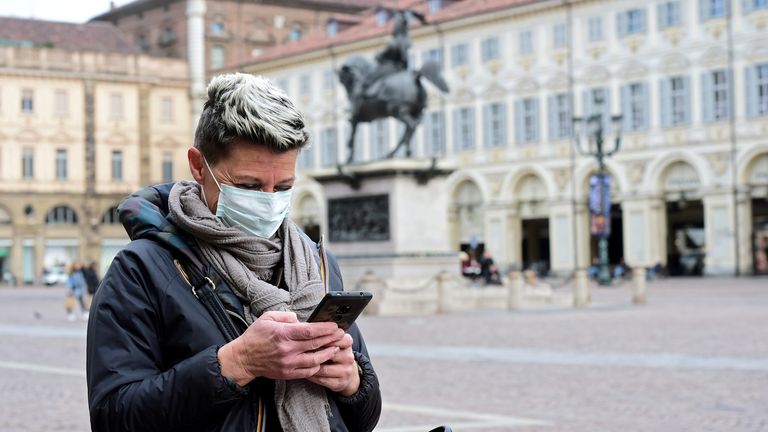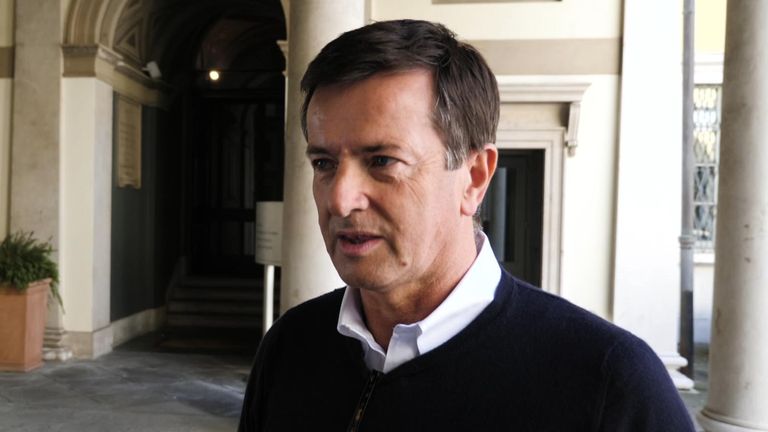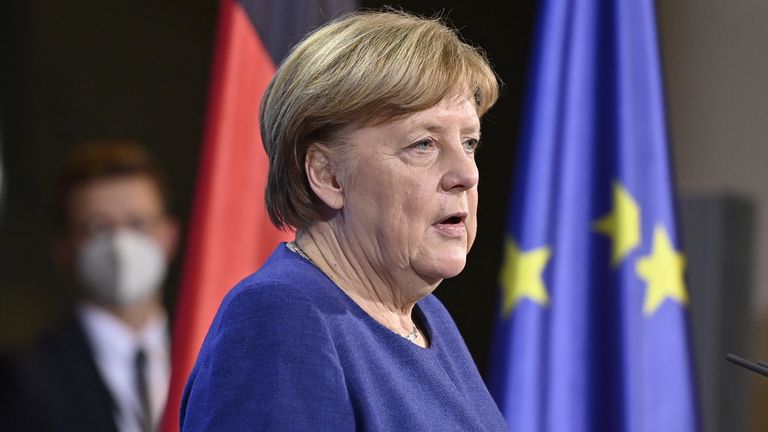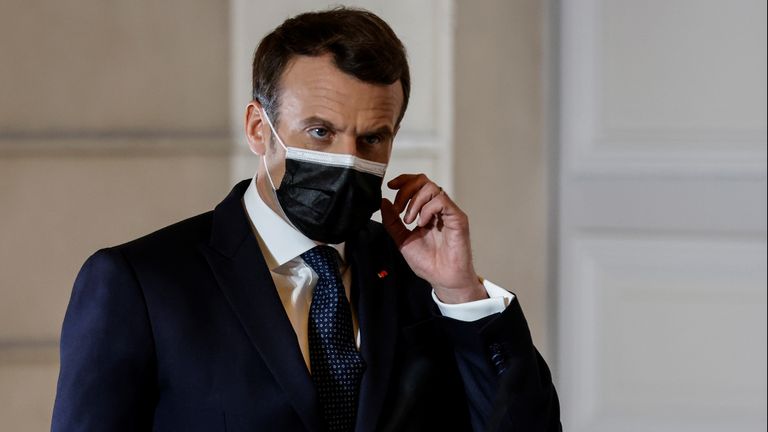Italy has surpassed 100,000 coronavirus deaths a year after it became the first country in the world to impose a national lockdown due to the pandemic.
The Italian health ministry said 318 people had died in the last 24 hours on Monday, bringing the total to 100,103.
The latest figures mean Italy has the second highest number of deaths in Europe after the UK’s 124,566.
Nearly 14,000 new positive cases were also recorded on Monday, as the number of people in intensive care units (ICUs) rose to 2,700 – 95 more than a day earlier.
Italy’s total virus cases surpassed three million last week, with a new surge powered by the highly contagious variant that was first identified in Britain towards the end of 2020.
More than a year has passed since the first Italian coronavirus death – 78-year-old retired roofer Antonio Trevisan, who died on 21 February 2020.
Hospitals in the northern region of Lombardy were soon overwhelmed and morgues were unable to keep up, and convoys of army trucks carried away the dead.
Priests handled death on an industrial scale in little towns like Seriate, near Bergamo, with coffins accumulating in a local church after cemeteries were not able to bury all the dead.
Priests would bless the coffins before they were carried away by military vehicles.
The whole of Italy went into lockdown on 10 March 2020 – the first country to impose such a measure nationwide – after targeted restrictions in the north failed to stop the spread sufficiently.
Cities like Rome, Milan and Venice, which were previously crowded with tourists, became totally empty.
Now, the situation is once again deteriorating as new cases rise – and there is a increased spread of the highly contagious new variants.
Prime Minister Mario Draghi said on Monday that the country would ramp up its vaccination campaign in the coming days to help pull the country out of the crisis.
Like other European Union countries, Italy’s vaccination campaign has got off to a slow start, hit in part by delivery delays from drug manufacturers.
As of Monday morning, 5.42 million shots had been carried out, with 1.65 million of Italy’s 60-million-strong population having received the recommended two doses.
The government is considering switching tactics to give priority to first doses rather than stockpile second doses.
It comes as a member of Chancellor Angela Merkel’s party in Germany said he would quit parliament after he was found to have received payment for brokering face mask procurement deals for local authorities.
The scandal risks stirring more voter disgruntlement, after the country’s ruling coalition came under fire for a slow COVID-19 vaccination campaign.
Elsewhere in Europe, the number of people treated in French ICUs for COVID reached a 14-and-a-half-week-high on Monday at 3,849, while total hospitalisations for the disease increased for the second day running to 25,195.
The number of people in ICUs in France is still almost two times lower than the 7,184 peak in April 2020, but remains well above a government target level of 2,500 to 3,000 for easing coronavirus limits on the circulation of people.
And in the Netherlands, Prime Minister Mark Rutte on Monday said an evening curfew to combat the coronavirus outbreak there must remain in place until at least 31 March.
Mr Rutte said that due to continuing high numbers of new cases, the curfew and most social distancing measures must remain in place, though exceptions will be made to allow national elections on 15 to 17 March to proceed.
The Dutch government will also lift a ban on passenger flights and ferries from Britain starting on Tuesday, the news agency ANP reported.
The ban had been imposed in January in order to prevent or slow the spread of the so-called Kent variant, but the government believes the measure has become obsolete because it is now a common driver of infection.





